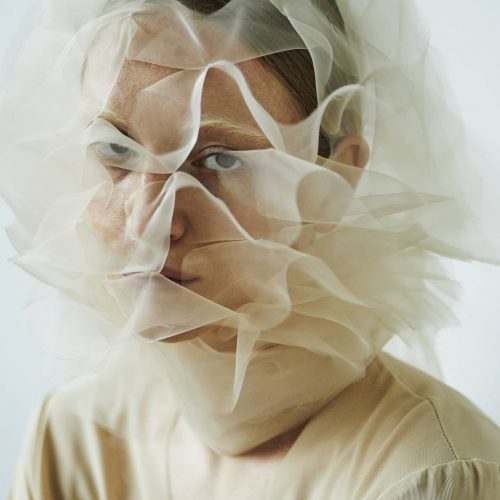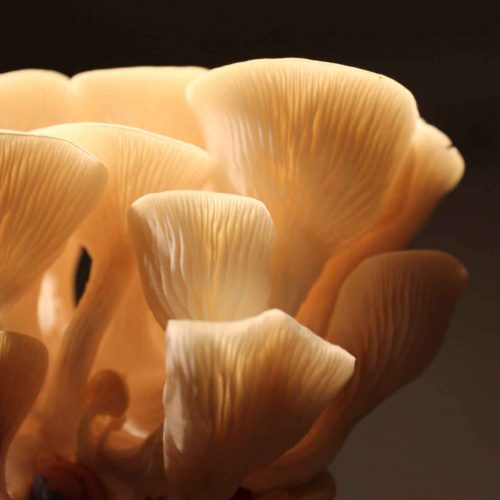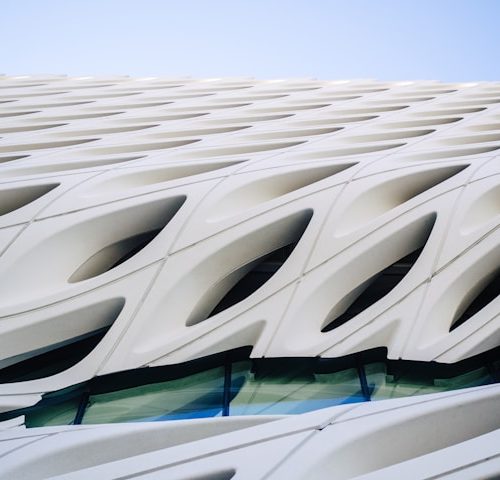Green Product Award 2024 | The Winners Of The Future
Last Tuesday, the Green Product Award held its 2024 ceremony at Nordic Embassies in Berlin. The program featured new inventions and products that pave way for a sustainable future. Let’s meet the changers of the future.
To receive the Luxiders Newsletter, sign up here.
The International Green Product Award were founded in 2013, with the mission to recognize and reward projects in the market that are committed to sustainability and the creation of eco-friendly products of the future. In its 11 year history, Green Product Award has developed beyond a traditional award into a central hub for sustainable activities.
With the global call for entries in 13 categories, a diverse spectrum of sustainable innovations is compiled each year, ranging from architecture to consumer goods. In close collaboration with an expert jury (of which Belvis Soler, editor-in-chief of Luxiders Magazine, is a member), the submissions are carefully scrutinized and the best work is then selected from the nominated submissions from established companies, start-ups, students and graduates. This collection forms the basis for the annual Green Trend Book, exhibitions, matchmaking talks and further cooperation projects.
This year, the prestigious award had a record of 1500 participants from 60 countries, demonstrating the growing importance of sustainable products and materials around the world. The winners under each category show the creative ways that design excellence intersects with innovation.
Diplomats from various European embassies did not hesitate to attend the event at Nordic Embassies in Berlin to see the award-winning products first hand.

© Green Product Award 2024
PRODUCTS OF THE FUTURE
Under the category for “Architecture” is the design for an urban landscape with the use of plant based material and repurposed waste. The designers Sahda Salsabila and Xinuri Cai from the UK intend for their bio-based architectural design to be used for building amphitheaters in cities. Also, a winner for this award is a modular construction system called 3D Wood Wind. Submitted by a research group from the University of Kassel, Germany, the 3D Wood Wind is capable of replacing concrete or steel systems in buildings.

Urban Soundscape

3D WoodWind
A winner for the category “Building Components” is Forestlines by Belgian designer Steven Paulussen. Forestlines Stats comprises untreated wood with high-fire reaction. The design allows for the use of recycled wood and prioritizes biodiversity. Another winner in this category is MYSOL 3.5K by designer Cristoph Konheisner. MYSOL 3.5K is a modular backup battery tailored for Africa’s energy needs, being both affordable and producing less waste. The third winner is a heat transfer fluid additive called Maxwell. Designed by Arturo de Risi of HT Material Science, Maxwell has significantly less energy consumption and carbon emission than other heat transfer systems in the market.
For the category of “Consumer Goods' ' is an eco-friendly rum called Flor de Canã Terra Rum. Launched by Ingenio San Antonia in Nicaragua, the rum is made through ec0- friendly practices and packaged in recycled material. Also a winner is the eco-friendly cleaning sponges by Pebbles e.U. Made in Austria by designers Tamara Fürstl and Barbara Pfeffer, the sponges are completely homemade and do not use microplastics. The next winner under this category is the Aquasense shower head, which makes water conservation more fun and efficient. This amazing product comes from Hochschule für Gestaltung Schwäbisch Gmünd, Germany and incorporates mobile app technology to track data on water usage for users to keep note of.

Forestlines Slats

Pebbles e.U.

Flor de Cana Terra Rum
Next up is the “Freestyle” category which had winners with creative and original products. The first of these is Vank_Cube. This is a line of office furniture that incorporates biomaterials into its design. Vank_Cube enables buyers to easily set up green workspaces that absorb CO2 in their offices. The other winner of this category is Conscious Confetti from designer Ida Van Esch. This is a biodegradable confetti which will ensure that there is no plastic waste left behind at your next party. Yet another winner under this category is Nautilus from Swiss designer Léon Bolz. Nautilus is a practical tool that facilitates the efficient collection of invasive freshwater mussels that threaten sea ecosystems.
A winner of the “Interior & Lifestyle” category is the business COCOLI. Founded in Germany, COCOLI recognizes that much of the furniture people throw away has the potential for reuse and aims to give these items a second life by fixing or repurposing them. They partner with other businesses to give the furniture a new home. Also in this category is GRO, a sustainable modular sofa made with recycled material. Designed by Isabela Baad Johnsen and Sara Gamst, the sofa emphasises sustainability as well as design and comfort. Also a winner is the UK-based designer Paul Beckett’s brand Reborn Products, which manufactures high quality mattresses and other bed accessories with the use of recycled material deemed as waste

Conscious Confetti

Vank_Cube

GRO
For the category of “Kids”, are some products that emphasize eco-consciousness while being kid-friendly. One such product is Finkid BUDDY EKO by designer Vera Dawallu. The product is a school satchel made from recycled materials. It is very versatile and mindful of children’s tastes and interests. Next up is the Little Skittles -Bowling set from designer Greta Giangrande. The creative toy is made from 100% recyclable cork pellets, and it provides hours of bowling fun for children and parents – outdoors and indoors. Another creative children’s toy is Amaze by designers Anna-Maria Nilsson, Clara Storsten & Lisa Wagner. Amaze combines maze challenges into balancing boards and provides children or even adults, an activity that improves balance and strength.

Little Skittles Bowling Set

FinKid BUDDY EKO
The award for the “Kitchen” category has three winners. The first is Muri, a compact, non-electrical cooling system which can refrigerate food without energy consumption. It makes use of an ancient concept of using wet sand as its cooling element. The next winner is Nunc., innovative portafilter espresso machine that features a minimalist design and consumes less energy than a traditional model. The coffee filters are 100% recyclable and the coffee is ethically sourced. The final winner is an innovative line of kitchen appliances called Sute. Designed by Alina Schlegel, Sute comprises handheld mixers that come with spare parts so that the product can be used for a very long time.
Under the category for “Mobility” is a unique solution that will push for more electromobility. ChargePost is founded in Germany. It is a battery-buffered, ultra-fast charging station that enables electric vehicles to be charged within minutes. This invention could encourage more people to opt for environmentally friendly electric vehicles. Also a winner of this award is the Green Marathon, an environmentally-friendly bicycle tire created by german designers Stefan Franken & Felix Jahn. Another original and futuristic invention in this category is the City Transformer CT-1. This is an electric vehicle with a shape-shifting mechanism that allows for it to transform from a full-sized model to a more compact form, such an invention will help solve the problem of finding space for car parks in cities.

NUNC
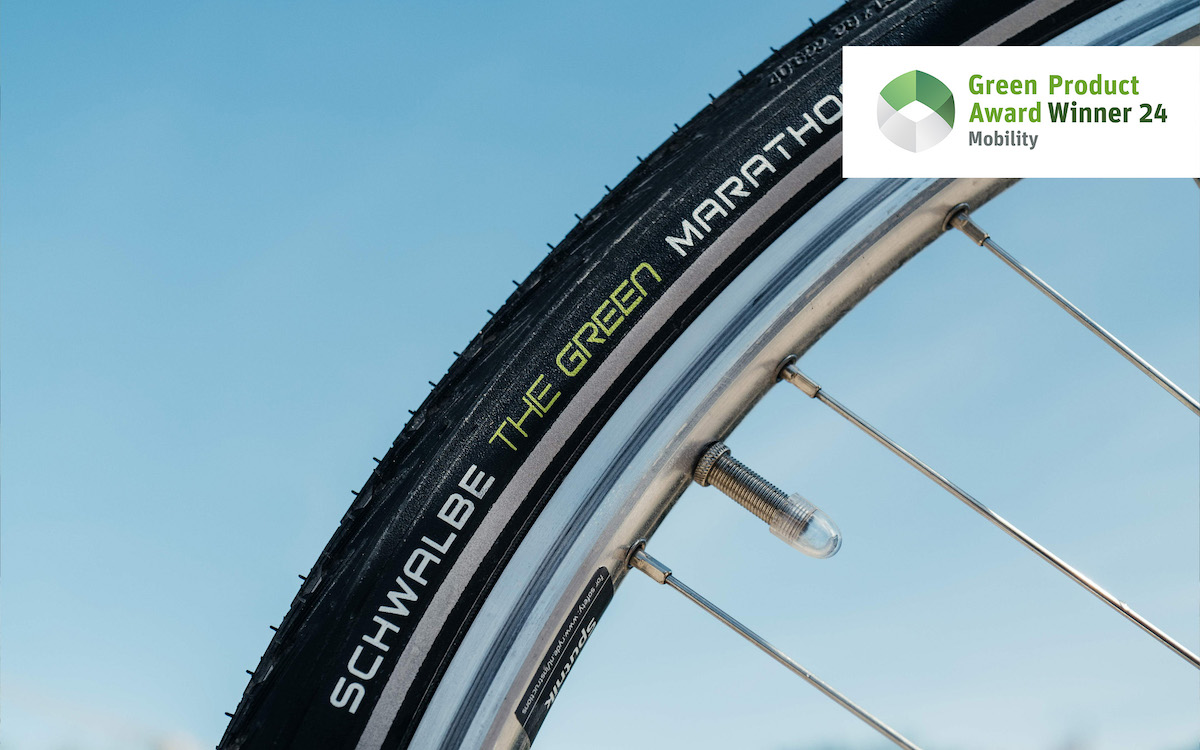
The Green Marathon Tire

City Transformer CT-1
The category for “New Materials” includes many important inventions. Among them is ARCHISONIC invented by impact acoustic. This product is made from recycled materials that are capable of absorbing acoustic while elevating the natural aesthetics of any room. Another new material in this category comes from german-based institute Revoltech GmbH, which has produced a hemp-based alternative to leather called LOVR. Also awarded is German designer Marianne Sellmaier’s research project Infused Earth. This project delves into the use of 3D printing to craft construction-related objects like tiles. The project also promotes biodiversity, boosting ecological balance.

Archisonic
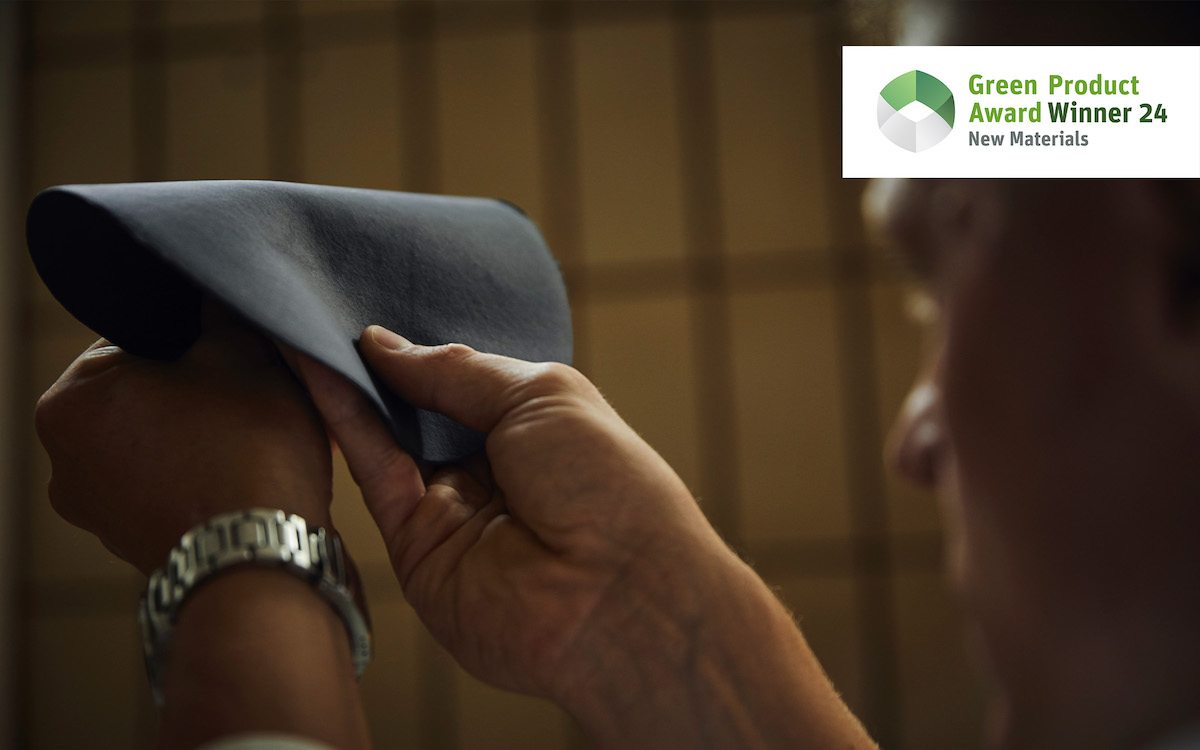
LOVR
For the category of “Packaging”, a new innovation shines out. Developed by designers of the Royal College of Art, UK, Carbon Cell is a non-toxic, biodegradable foam box. It is meant to be a replacement for Styrofoam boxes which are toxic and take long to degrade. Carbon Cell provides excellent thermal insulation, strength and adaptability for use by customers. Another new sustainable packaging material is the new coating technology from italian brand Qwarzo®. It is a silica-based coating that can be used to replace plastic and plastic films on paper, fabric, metal and other substrates. The third winner of this category is FibreStrap from designers Folke Najjar, Sigrid Svedberg & Tobias Bergarp. This new product is made from wood and intends to replace fossil-based plastic cable ties.
In the category for “Personal Care” is the revolutionary, sustainable dental care products by Dr. Bauer’s Zahnliebe. Manufactured in Germany, the toothpaste and toothbrushes make use of natural products and add a new conceptual design. Austria brand HOLY PIT! Is also a winner for their line of refillable, vegan roll-on deodorant. The next winner is a research project from german Eric Geißler called Compodry. The study investigates the use of compostable materials in small electrical appliances using the example of a hairdryer.

Dr Bauer Zahnliebe

Compodry

HOLY PIT!
A winner of the award for the “Workspace” category is W-S cooling. Made in Taiwan, W-S Cooling is a PV-wind hybrid device installed on farms. It absorbs moisture from air and transfers it to cool down crops through the use of solar panel technology. This invention makes use of new materials and existing farming techniques. Another winner in this category is Pasqual Arnella from spanish designers Martí Pascual & Ramón Pascual. The product comprises mannequins made from waste paper that can easily substitute plastic mannequins used in stores. The third winner of this award, Biocapsules from designer Gabriel Estevam Domingos uses discarded collagen capsules or waste from the cellulose industry as packaging materials for seeds, which are used for reforestation.

Sustainable Biocapsules
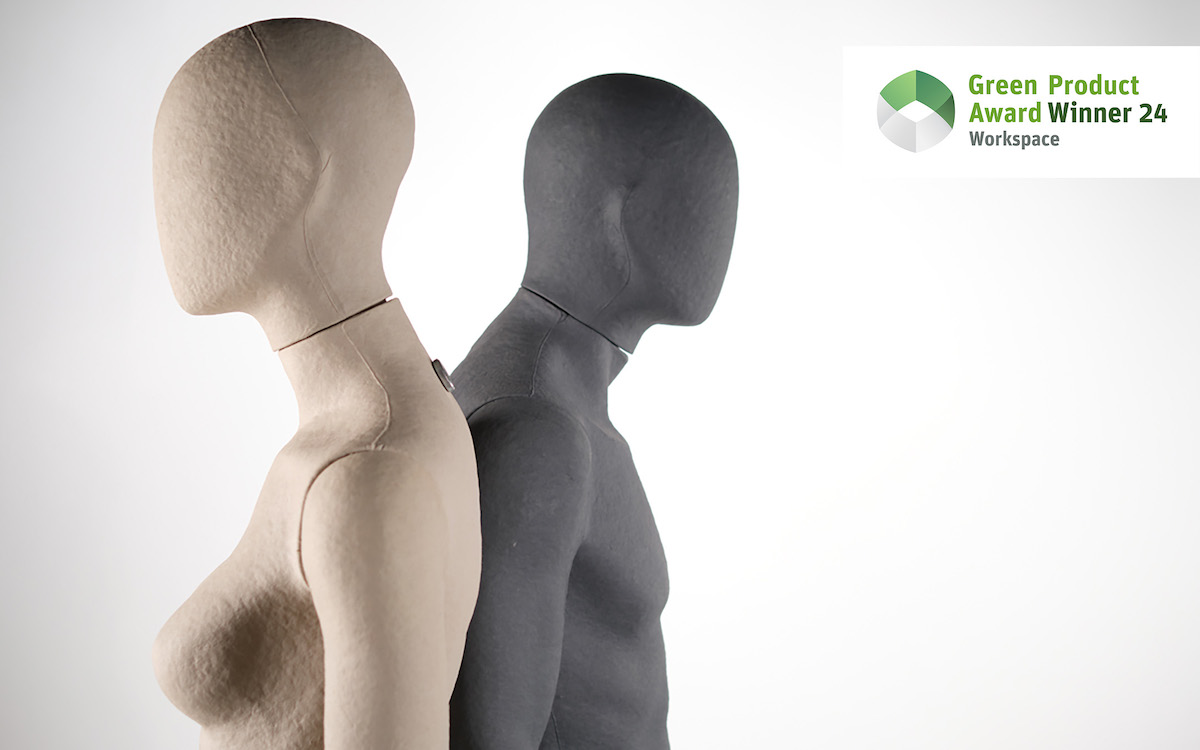
Pasqual Arnella
GREEN FUTURE CLUB
Under the slogan, “Let’s design the future”, the Green Future Club aims to contribute to a future where products are sustainable. The organization continues to uphold this mission, while also connecting diverse groups of pioneers and inventors from around the world. The winners of this year’s event were selected by a panel of industry experts. In addition, public winners were chosen in a public vote in which over 60,000 votes were cast. The event was held at the Nordic embassies of Berlin, and attended by international participants from around 30 countries, as well as other guests. All attendees of the ceremony were gifted with an assortment of sustainable products and the latest Green Trend book, designed by our team at Luxiders.
Take a look at the Green Trend Book to learn more about the sustainable products of the future.

Green Product Award 2024

Green Product Award 2024
+ Highlight Image: © Courtesy Green Product Awards 2024
+ Words
Liza Silva
Luxiders Magazine


